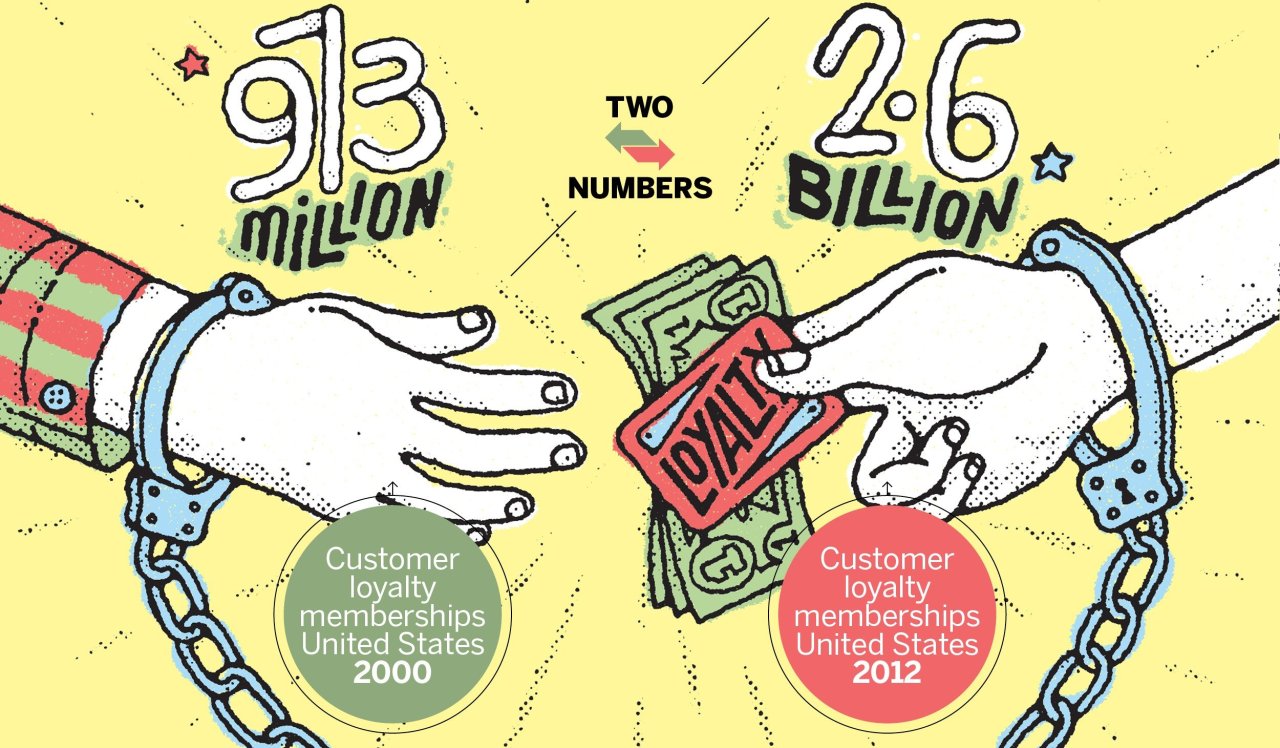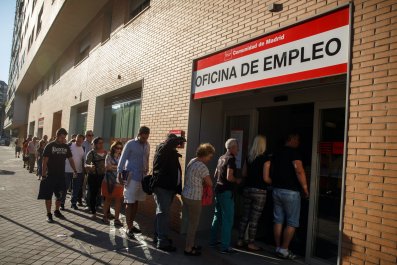Customer loyalty is the holy grail of business. No wonder, then, that with new technology, programs designed to retain customers and encourage repeat buying have exploded around the world in recent years. From Mumbai to Melbourne, hotels, airlines, rental cars, credit cards, grocery stores, pharmacies, movie theaters, coffee shops, department stores and gas stations inundate consumers with loyalty programs that keep track of every purchase.
In the United States, the number of customer loyalty memberships now stands at 2.6 billion, according to research by Colloquy. That means 22 memberships for every household in the country. Of course, not all memberships are used. You may sign up once to get an initial discount on a purchase and never go back. So Colloquy calculates that the number of active loyalty program memberships in the U.S., meaning a program used at least once in the past 12 months, totals 1.6 billion, or 10 active memberships, for every household.
Early research on loyalty programs in the 1990s by Frederick Reichheld and W. Earl Sasser found that loyal customers buy more and pay higher prices. And the pair produced a rule of thumb: A 5 percent increase in customer retention typically increases a company's profitability by 25 percent.
While the benefits for companies are clear, the rewards for customers may be less so. The advertised benefits of a loyalty program are often not well defined. A CVS Extra Care rewards program, for instance, advertises "coupons for instant savings." But if you don't want the product in the first place, what use is a coupon allowing you to buy one and then get the second for 50 percent off? And if you read the fine print, plenty of restrictions apply to realizing the program's benefits. What's more, companies can and often do change the terms of their program. Airlines are notorious for this. It's not uncommon for a frequent flier to carefully save up miles only to find out that they can't be redeemed under the program's new rules.
Loyalty programs typically require customers to sign up by providing personal information, including a home address, phone number and email address. Companies then track, analyze and store information about every purchase you make. With additional data purchased from data brokers, companies can create a very detailed customer profile, including your habits, likes and dislikes. That information may be used to offer you great deals, but it may also be used to extract a higher price for products you really need or want. So remember, a discount today may mean a higher price tomorrow.





























